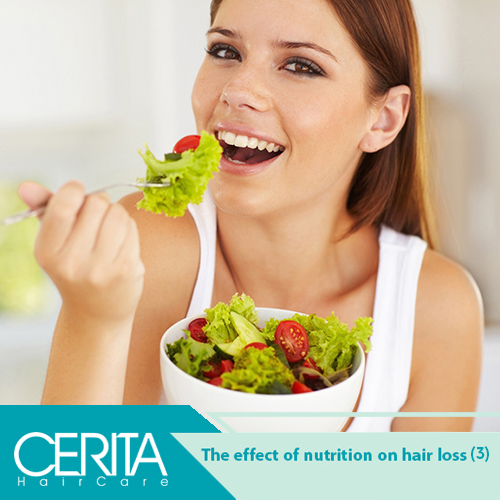The effect of nutrition on hair loss (Part 3)
Fats can act as a double-edged sword in the process of hair loss. Useful fats that contain essential fatty acids are necessary to maintain hair consistency and proper hair growth.
Even small deficiencies in essential fatty acids can cause dryness and brittleness of the scalp, increased scalp oiliness, hair loss, and even dandruff and itching. Lack of essential fatty acids in laboratory animals with reversible baldness and increased sebaceous glands around the hair follicles. Has been accompanied.
Consumption of saturated fats, on the other hand, can have adverse effects on hair growth and development. These fats interfere with the absorption of essential fatty acids and reduce their absorption. According to Japanese scientists, the presence of high fat in the diet of men accelerates the mechanism of baldness. In this way, a part of the scalp produces an enzyme called gamma-alpha-reductase. This enzyme converts testosterone to dihydrotestosterone (DHT), a compound that causes hair loss. The sebaceous glands adjacent to each hair follicle also produce this enzyme. The presence of high fat in food stimulates the sebaceous glands and increases the activity of these glands to produce enzymes.
Omega-3 and omega-6 fats: Studies show that omega-3 and omega-6 fatty acids are linked to hair health; because most people suffer from dry and brittle hair, itching and dandruff of the scalp and eventually hair loss when they consume less or no sources of these fatty acids.
Sources of omega-3 and omega-6 fatty acids: Omega-3 fatty acids include alpha-linolenic acid and eicosa pentaenoic acid (EPA) in cold-water fish such as salmon and sardines, soybean oil and canola, wheat germ, walnut oil, flaxseed or cottonseed oil. And fish oil is found. Omega-6 fatty acids include linoleic acid and omega-linoleic acid and are found in unsaturated vegetable oils such as corn oil, canola oil, soybean oil, peanut oil and sunflower oil.
In the end, we can only say that you care about your nutrition.


